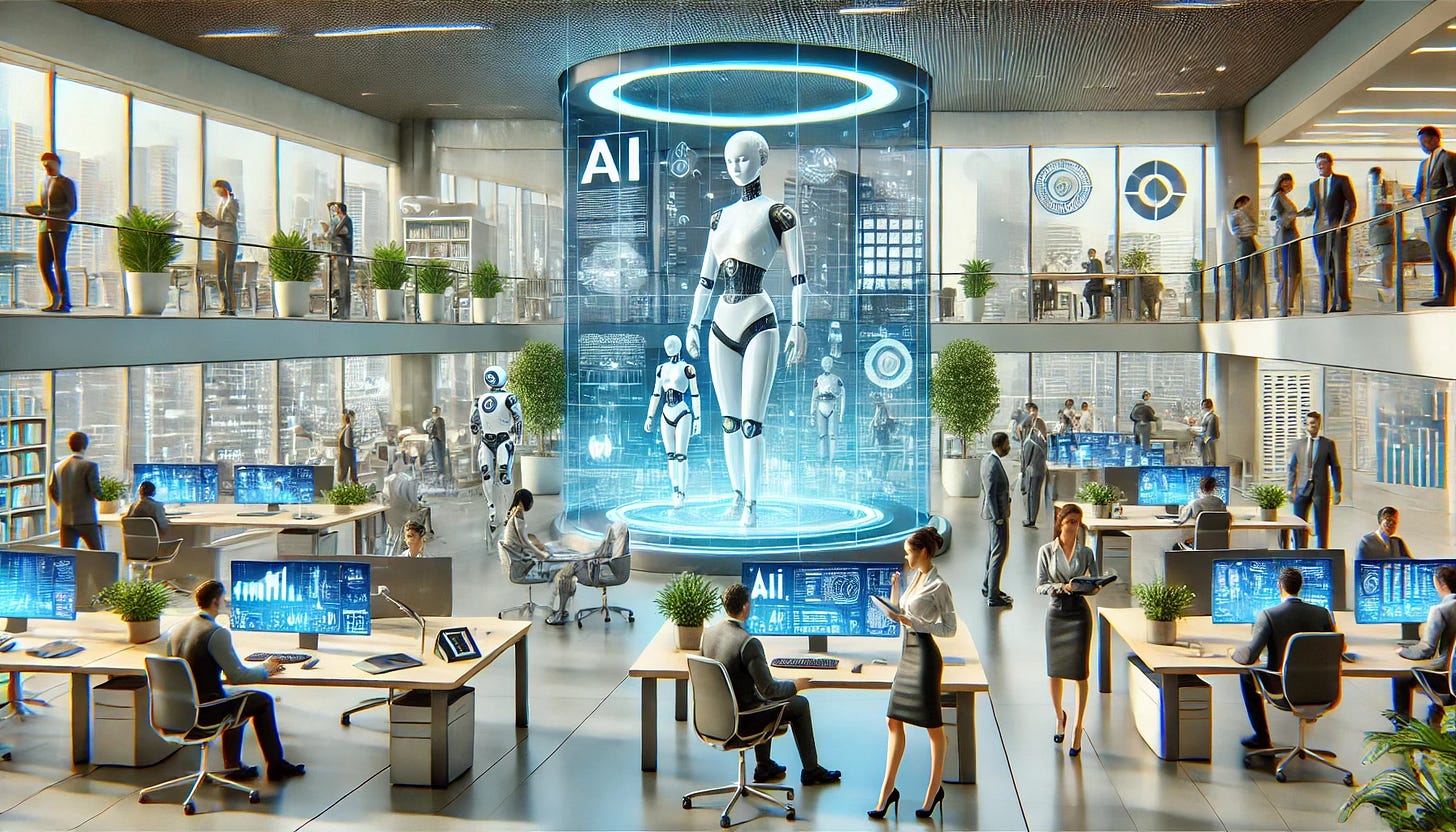Since the beginning of commerce, businesses have aimed to optimize operations, reduce costs, and boost efficiency. Today, AI is driving a significant transformation in the workplace, poised to impact everything from routine tasks to strategic decision-making.
Generative AI tools (“GenAIs “) kicked off the new age of office productivity with ChatGPT, Google Gemini, Microsoft CoPilot, ClaudeAI, and others. These GenAIs are revolutionizing key office functions by automating tasks, enhancing productivity, and enabling new forms of collaboration. They create content, draft documents, and manage meetings, while also transforming research, data analysis, and administrative tasks.
AI agents are increasingly playing a pivotal role in transforming automating and optimizing workflows – especially in the enterprise. In sales, tech companies like Artisan, Clay, and Qualified are leveraging AI to streamline and enhance sales processes. In customer support, organizations such as Cognigy, Maven AGI, and Sierra are developing AI-driven solutions to improve customer interactions and service efficiency. Productivity is being bolstered by AI tools from companies like Ema, MultiOn, and Orby, which aim to enhance organizational efficiency.
In human resources, AIs accelerate recruitment processes and provide personalized training. Additionally, AI aids in legal and compliance tasks, enhances customer and employee engagement, and supports creative design and ideation. These advancements free up human workers to focus on higher-level tasks, improving overall efficiency and reducing operational costs.
In the future, AI-enhanced productivity tools will continue to revolutionize work. Virtual assistants like Siri, Alexa, and Google Assistant will handle complex tasks, while AI software will automate routine activities, allowing employees to focus on higher-value work. AI will also facilitate real-time collaboration and improve international meetings through instant translation.
AI-driven decision-making will advance further, analyzing vast data to provide actionable insights, predict market trends, and optimize supply chains. In HR, AI will streamline recruitment, enhance employee development with personalized learning, and automate performance assessments.
AI's optimization algorithms will solve complex problems in scheduling, resource allocation, and supply chain management, using tools like Gurobi Optimizer and IBM ILOG CPLEX. Process automation, including Robotic Process Automation (RPA), will transform operations by automating repetitive tasks, reducing human error, and lowering costs.
AI will also enhance operational efficiency in industries like manufacturing through predictive maintenance and energy management. It will contribute to cost reduction by streamlining product development, detecting fraud, and optimizing pricing strategies.
However, AI adoption faces challenges such as data privacy, process complexity, high initial costs, ethical concerns, and security risks. Overcoming these barriers requires addressing change management, scaling AI effectively, and ensuring responsible use.
As AI automates routine tasks, employees will shift their focus to strategic decision-making, creative problem-solving, and relationship building. Human roles will center around tasks that require intuition, empathy, and complex judgment, such as leadership, ethical oversight, personalized sales and customer service, and continuous learning. This transition will make the workplace a hub for innovation, collaboration, and activities that leverage the uniquely human abilities to think creatively and connect with others.
In sum, the office of the future will be highly automated and data-driven, with AI enhancing productivity, decision-making, and customer experiences. Businesses that embrace AI today will secure a competitive edge in the evolving marketplace.




